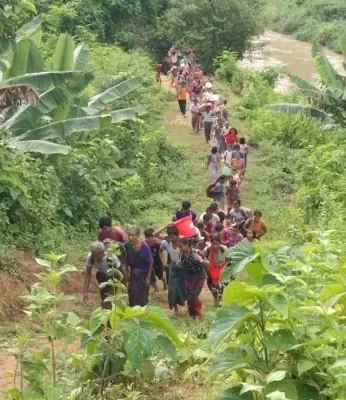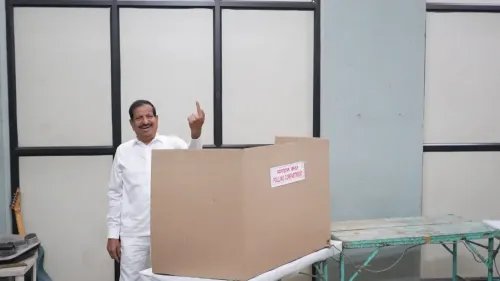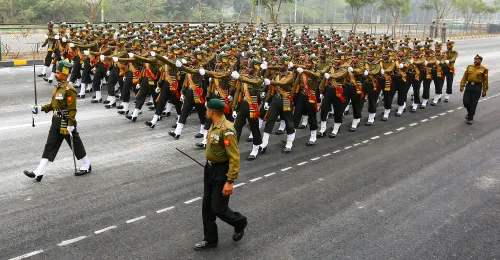Is the Mizoram Government Set to Begin Biometric Enrollment for Myanmar Refugees?

Synopsis
Key Takeaways
- Mizoram government will start biometric enrollment for refugees.
- Approximately 35,000 Myanmar refugees are in Mizoram.
- The Ministry of Home Affairs is funding the initiative.
- The situation at the border has stabilized.
- Biometric data collection will aid in refugee support.
Aizawl, July 14 (NationPress) Following Manipur, the Mizoram government has announced plans to gather biometric and biographic data of Myanmar refugees who have sought refuge in the northeastern state after the military coup in their country in February 2021, as stated by officials on Sunday.
An official from the Mizoram Home Department revealed that this extensive initiative aims to collect biometric and demographic information from approximately 35,000 Myanmar refugees and is expected to commence by the end of this month. The data collection will utilize the Foreigner Identification Portal and will be executed across all 11 districts of the state.
The government has allocated Rs 38 lakh for this operation, which will be financed by the Ministry of Home Affairs (MHA). The biometric data collection will be carried out by the relevant district administrations under the oversight of Deputy Commissioners. Training for the government personnel involved in the process has nearly been finalized in every district.
The MHA previously urged both the governments of Manipur and Mizoram to gather biographic and biometric details of 'illegal migrants' in their regions and to expedite the process. Both northeastern states had consented to undertake the collection of data for Myanmar nationals.
In contrast, the former Mizo National Front government was hesitant to gather biometric and biographic information of Myanmar refugees. However, the current government led by the Zoram People’s Movement (ZPM) and Chief Minister Lalduhoma has agreed to proceed with the initiative.
Since the military coup in Myanmar in February 2021, numerous refugees, including women and children, began arriving in Mizoram and Manipur seeking asylum, with their numbers in Mizoram now reaching around 35,000.
A few thousand refugees are also residing in Manipur, which shares a 398 km unfenced border with Myanmar. The Manipur government has nearly completed the collection of biometric and demographic data for the refugees in that state. Earlier this month, over 4,000 individuals, including women and children, fled to Mizoram, finding refuge in two locations within the Champhai district.
Officials in Mizoram’s Champhai district reported that refugees began entering the state through the Zokhawthar areas starting July 3, following violent clashes between two ethnic factions in Myanmar. Reports indicate that the Chin National Defence Force (CNDF) and the Chinland Defence Force (CDF), both anti-military ethnic groups, engaged in a series of armed conflicts from June 28 to July 5 over territorial control.
Currently, the situation along the India-Myanmar border in Mizoram has stabilized.
The refugees, primarily from the Chin tribes, share significant ethnic and cultural ties with the predominant Mizos of Mizoram. They are currently residing in camps and with relatives across 11 districts in the northeastern state, which has a 510 km unfenced border with Myanmar.
According to officials from the Home Department, the largest number of Myanmar refugees is currently sheltered in Champhai district. Myanmar's Chin state shares mountainous borders with six Mizoram districts: Champhai, Siaha, Lawngtlai, Hnahthial, Saitual, and Serchhip.










